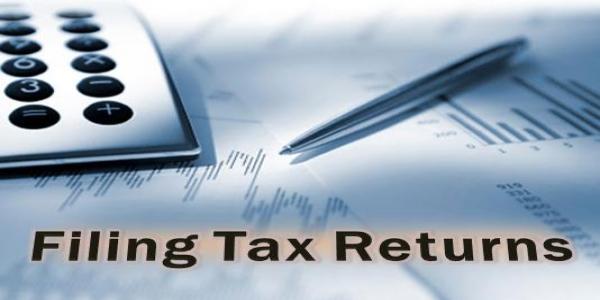Complete Guide to Unfiled Tax Returns Help: Resolve Your IRS Tax Issues
Latest Facts & News Hook
- New IRS enforcement initiatives in 2025 are targeting unfiled returns more aggressively than ever
- The Fresh Start Program has expanded eligibility criteria, making resolution easier for taxpayers
- Recent data shows that 12 million Americans have at least one unfiled tax return
- The IRS Voluntary Disclosure Program now offers reduced penalties for proactive filers
Not all tax problems start with unpaid bills. Sometimes, the problem is that a return was never filed at all, and that can create more issues than most people realize.
Unfiled tax returns may seem like something you can deal with later, especially if no one has contacted you. But the IRS tracks them and responds to them, and over time, missing returns can lead to penalties, letters, or even blocked opportunities in everyday life.
This blog post explains what unfiled returns really are, how they affect you, and where to turn for unfiled tax return help to get back on track.
Understanding Unfiled Tax Returns and IRS Consequences
It is compulsory for every citizen of the US, no matter if you are an individual or a business, to file a tax return each year, and taxes are based on your income and several other factors like deductions, credits, filing status, and the type of income earned.
If you don’t file a required return by the deadline, the IRS treats it as unfiled, and that’s when the problems begin.
Not filing can lead to automatic penalties, interest piling up, warning letters from the IRS, and eventually, serious enforcement steps. It’s important to understand these consequences so you know what’s at stake and can take the right action if you’re behind on your IRS unfiled taxes.
What Constitutes an Unfiled Tax Return
A tax return is considered unfiled when someone who’s supposed to file just hasn’t sent it in by the due date. Whether you need to file depends on
- Total income earned during the year
- Filing status (for example, single or married)
- Age
- If self-employed, any net earnings over a specific amount
- Other unique tax requirements (such as certain credits, foreign income, or obligations from investments)
For 2025, if you’re single and under 65, you must file a tax return if you made $14,700 or more. If you’re married and both under 65, you must file if your total income is $29,400 or more. If you’re self-employed, you must file if you earned at least $400 after expenses.
If you don’t file when required, the IRS starts tracking it. Even if you don’t owe any tax or expect a refund, you still have to file. If you don’t, the IRS will mark your return as unfiled and may start sending letters and charging penalties.
IRS Penalties and Interest for Unfiled Returns
Taxpayers who fail to file the required return on time are subject to the IRS penalty for unfiled taxes and interest as follows:
- Failure-to-File Penalty
- When the tax return is not filed within the time for filing, the IRS imposes a penalty at the rate of 5% of the unpaid taxes for every month in delay, even if the late response to an IRS request comes a few days into the month. The penalty may be up to 25%.
- If you are more than 60 days late in filing, in 2025, at least a minimum amount of penalty is imposed: it will be either $510 or 100% of the amount of tax required to be shown on the return.
- Failure-to-Pay Penalty
- If you do not pay the taxes on time, the IRS charges you a small penalty of as much as 0.5% for every month that the payment is unpaid until it reaches 25%.
- And if they’ve sent you a Final Notice of Intent to Levy and you still haven’t paid after 10 days, the penalty rate will double to 1% per month.
- Combined Penalties
- When you miss both the filing and the payment deadlines, the IRS doesn’t impose the full penalties. Instead, they cap it at 5% per month, with most of that coming from the failure to file.
- Interest
- Interest is charged on unpaid taxes and penalties.
- For individuals, the rate for underpayments in the second quarter of 2025 is 7% per year, compounded daily.
- Interest continues to accrue and compound daily, increasing the total amount owed over time.
Timeline: What Happens When Returns Are Not Filed
The IRS follows a specific process when tax returns are not filed as required:
- Filing deadline passes: The IRS does not receive your tax return by the due date (usually April 15 each year).
- IRS sends the first notice: The IRS sends a letter or notice by mail to remind you to file your missing tax return.
- Penalties and interest begin: Penalties for not filing and for not paying any tax owed start to add up each month after the deadline. Interest is added daily.
- IRS sends follow-up notices: The IRS sends more letters if you do not respond or file. These letters may become more urgent and explain possible consequences.
- IRS may create a substitute for return (SFR): If no response is received, the IRS may create a tax return for you based on information from your job, banks, or other sources. This return does not include tax credits or deductions. It often shows a higher tax balance.
- IRS sends a tax bill: The IRS sends you a bill for the taxes it believes you owe from the substitute return, plus penalties and interest.
- IRS collection actions begin: If you do not pay or contact the IRS, they may begin collection actions. The IRS can take money from three places, like your paycheck (wage garnishment), bank accounts (levy), or place a legal claim on your property (lien).
- Refunds can be lost: If you are owed a refund but have waited more than three years, you cannot get that money.
- Serious legal action (rare): In a small number of cases where returns are not filed for a long time and large taxes are unpaid, the IRS may consider criminal charges.
Unfiled tax returns help from Verni Tax Law can reduce what you owe in penalties and interest. Even if you’re late, filing now with the right support can stop IRS actions from getting worse.
Professional Unfiled Tax Returns Help: Your Resolution Options
Dealing with unfiled tax returns can be difficult. However, there are programs and professional services designed to help resolve these issues with the IRS.
IRS Voluntary Disclosure Programs
The IRS Voluntary Disclosure Program is a way for individuals or businesses with unfiled tax returns to come forward before the IRS contacts them. Using this program, taxpayers can resolve missing returns, report past income, and avoid more severe legal consequences.
How the Program Works →
- Taxpayers must voluntarily tell the IRS about previously unreported income or unfiled returns before the IRS starts an investigation.
- All required tax returns must be filed, and any owed taxes should be paid, or payment arrangements must be made.
- Full cooperation with the IRS is required during the review process.
Benefits →
- The risk of criminal charges is greatly reduced for those who use the program before being contacted by the IRS.
- Civil penalties may be lowered, depending on the situation.
- Taxpayers are given clear instructions and support to resolve their cases.
Coming forward through the Voluntary Disclosure Program is always better than waiting for the IRS to take action. It gives taxpayers a chance to fix past mistakes with less stress and risk.
Fresh Start Program for IRS Unfiled Taxes
The Fresh Start Program is a set of options from the IRS designed to help people and businesses who owe back taxes or have unfiled tax returns. The goal is to make it easier to pay taxes, avoid harsh penalties, and get back on track with the IRS.
Main ways the Fresh Start Program helps:
- Monthly Payment Plans: If you cannot pay all of your taxes at once, the IRS allows you to make smaller payments each month until the debt is paid.
- Offer in Compromise: If you cannot afford to pay the full amount of taxes you owe, you may be able to settle your tax debt for less. The IRS will check your income, expenses, and assets to decide if you qualify.
- Penalty Relief: If you have a good reason for not filing or paying taxes on time, the IRS may remove some penalties. First-time filers and people facing hardship can often benefit from this.
- Easier Rules for Many Taxpayers: The IRS raised limits for payment plans and made paperwork simpler, so more people can qualify.
Working with Tax Professionals
Unfiled tax returns require careful handling. The IRS watches unfiled returns closely and can take serious action over time. Verni Tax Law helps individuals and businesses with:
- Review your tax history and IRS notices carefully.
- Preparing and filing all missing tax returns accurately.
- Negotiating with the IRS to reduce penalties and arrange payment plans.
- Representing you fully so you do not have to deal with the IRS alone.
- Stopping or delaying collection actions like wage garnishments or liens.
- Reducing the risk of audits.
- Helping you stay compliant in the future.
Verni Tax Law has experience serving clients across the United States and abroad with US tax obligations.
Led by a licensed tax attorney and CPA, the firm combines legal and accounting knowledge to protect your rights and resolve your tax issues. Getting professional help early improves your chances of resolving unfiled tax returns with less penalty and stress.
Step-by-Step Process to Resolve Unfiled Tax Returns
Handling unfiled tax returns is important to avoid IRS penalties and other problems. Here is a simple, clear step-by-step process for getting back on track with your taxes in 2025:
Step 1: Gather All Needed Tax Documents
Collect all the needed documents for each year you did not file, including:
- Wage statements (W-2)
- Income forms (1099 for contractors, bank interest, or investment income)
- Mortgage interest or tuition forms (108)
- Bank statements and records of business (if you have records)
In case some forms are missing, IRS transcript services can help. Form 4506-T is used as a request for past wage and income information from the IRS.
Step 2: Choose the Correct Tax Forms
- You need to file past due tax returns for every year you have missed.
- File using the tax form for the year in question. Old tax forms can be downloaded from the IRS website.
Step 3: Prepare and Complete Each Tax Return
- Complete the returns with your name and income information for each year.
- Claim every deduction and credit you can apply to.
- Every return has to be duly completed to avoid errors and additional penalties.
- You may file yourself using tax software, pay a tax preparer, or mail it in by yourself.
Step 4: File Your Back Tax Returns
Mail your completed returns for each year of unfiled return to the IRS processing center. Electronic submission could be allowed for the more recent years.
If piles of unfiled returns exist, send them all together in one go.
Step 5: Pay Taxes Owed or Arrange for Payment
Try to pay as much of the amount you owe in taxes as you can to lessen interest and penalties. IRS penalties are 5% per month on late filing (up to 25%) and 0.5% per month on late payment.
If you cannot pay in full, consider the following options:
- Request payment in monthly installments (installment agreement).
- Find out if you may qualify for penalty abatement or an offer in compromise to lower the amount due.
Step 6: E-Verify the Returns (if filed electronically)
Within 30 days of e-filing, complete the e-verification to conclude the process. This can be done using an Aadhaar OTP, net banking, or some alternative method (U.S. e-filers often do so through E-file PIN, AGI, or mailing a signed form).
Step 7: Respond Immediately to any IRS Notice
Keep an eye out for letters from the IRS and respond by the given date to avoid any further action or penalties.
Step 8: Set Reminders and Stay Compliant
- Keep track of deadlines down the road to avoid missing another return.
- Set reminders or work with a tax professional to help stay on track with filings.
Important Note →
- You can claim refunds from unfiled returns if you file within three years of the original due date; after that, any refund is lost.
- The IRS usually asks you to file the last six years to become compliant, but there is no limit for unfiled returns if you have never filed at all.
Filing your unfiled returns step-by-step is the best way to stop IRS actions, reduce growing penalties, and regain control over your finances.
Avoiding Common Mistakes in Unfiled Tax Returns Resolution
Correctly dealing with unfiled tax returns is very important to avoid balances and further annoyances with the IRS. The complete portion below will include all the essential guidance about acting before the IRS contacts you, understanding SFR risks, and additional common mistakes not to commit for a thorough approach.
Don’t Wait for IRS Contact
For unfiled tax returns, filing before the IRS approaches is always advised. Taking early action can:
- Help with penalty relief.
- Lower the overall amount of tax owed since penalties and interest apply each month.
- Allow the taxpayer to claim all eligible deductions and credits that reduce the underlying tax.
- Prevent strong IRS collection actions, such as wage garnishments and liens.
- Stop the IRS from preparing a substitute return for you, which is almost always higher.
In most cases, those who file before enforcement begins resolve their matters at a faster pace and also end up paying less in penalties
Understanding Substitute for Return (SFR) Consequences
If a required tax return is not filed, the IRS can create a Substitute for Return (SFR) using information from employers and banks:
- SFRs do not count your deductions, tax credits, or personal financial details.
- The resulting tax bill is often much higher than if you file yourself.
- IRS collection actions, such as wage garnishment and bank levies, can start soon after the SFR is processed.
- You can replace an SFR with your own completed return later, but this takes time and can delay refunds or relief.
Filing your own return before an SFR is created gives you more control and almost always leads to a lower amount owed.
Additional Mistakes to Avoid
- Not filing every missing return: Skipping even one year can leave you noncompliant. Always file for each required tax year.
- Using the wrong year’s tax form: Use the correct tax form for each year you missed. Every year’s form and rules differ.
- Leaving out income: Report all income from every source. Missing even small amounts can trigger IRS letters or penalties.
- Incorrect personal information: Make sure your name, Social Security number, and birth date are correct on every return. Errors can cause processing delays.
- Claiming unallowed deductions or credits: Only claim tax breaks you truly qualify for. Incorrect claims can result in extra penalties or audits.
- Not keeping good records: Keep all W-2s, 1099s, bank statements, and receipts for each year. Good records help answer IRS questions and are needed for correct filing.
- Wrong filing status: Selecting the wrong status (like single, married, etc.) changes your tax amount and can cause calculation mistakes.
- Not signing or verifying the return: Every paper return must be signed; electronic returns require verification. Without this, your return is not accepted.
- Math errors: small calculation mistakes can lead to extra bills or delays. Double-check all numbers.
- Ignoring IRS notices: Always read and respond to any letters from the IRS right away. Delays make the situation worse.
- Rushing the filing process: Careless mistakes happen when you file in a hurry. Set aside extra time for careful review.
For several missing years or complicated situations, professional help is important. Verni Tax Law can review your case, prepare correct filings, speak to the IRS for you, and work to lower your penalties and taxes.
Free Resources and Professional Unfiled Tax Returns Help
In case any tax returns remain unfiled on your part, please know that free government services and professional services exist that will offer help to you. Being aware of such options will help you to know what to do now to file your taxes in good faith and stay out of trouble with the IRS.
These are as follows:
- IRS Free File: In the year 2025, if your income is $84,000 and under, you are eligible to use the IRS Free File to prepare and file your federal tax returns online for free. It provides guided software with checks to be sure you do not make any mistakes so that you can file electronically.
- IRS Direct File: A new application has come through to allow taxpayers in some states to file their federal returns for free directly via the IRS web portal. It eases your filing experience since it uses data from the IRS that you already have.
- Volunteer Income Tax Assistance (VITA): This program provides free in-person tax preparation help. It is for low- to moderate-income persons, persons with disabilities, and persons with limited English proficiency. These volunteers help at community centers and libraries.
- Tax Counseling for the Elderly (TCE): TCE provides free help primarily for taxpayers aged 60 and older. Volunteers assist with questions on pensions and retirement-related tax issues.
These free resources can help you file simple past-due returns or current returns without paying fees.
How Many Years Can You File Back Taxes?
You can file back taxes for any number of years. The IRS does not have a limit on how far back you can file missing tax returns. However, there are a few important points to remember:
- If you are owed a refund, you have three years from the original tax deadline to file and claim it. After this time, you will lose the refund.
- The IRS usually requests at least the last six years of returns to be filed to bring your account up to date.
- If you owe taxes, there is no time limit on how far back the IRS can collect, so it is best to file all missing returns as soon as possible.
Filing all missing returns helps stop penalties from growing and reduces the chance of IRS enforcement actions.
What Happens if You Haven’t Filed Taxes in 20 Years
Not filing tax returns for 20 years can cause serious problems:
- The IRS can request all unfiled returns anytime because there is no expiration on unfiled returns for tax owed.
- The IRS may file a Substitute for Return (SFR) on your behalf, using information from employers and banks, which does not apply your deductions or credits. This often leads to a tax bill that is much higher than what you would owe.
- Penalties and interest keep building on unpaid taxes each month, making the amount you owe much larger.
- The IRS can start collection actions such as wage garnishment, freezing bank accounts, or placing liens on property.
- You lose the chance to claim a refund for any year if you do not file within three years of that year’s original deadline.
- The possibility of an audit or criminal investigation increases when returns are missing for many years, especially if income is large or not reported.
The best way to fix a 20-year filing gap is to file as many missing returns as possible, starting with recent years or those the IRS asks for. Filing now will help limit penalties and stop further IRS actions.
The Real Resolution Starts When You Stop Delaying and Start Addressing It
Unfiled tax returns do more than cause problems with the IRS. They quietly make other parts of life harder. Buying a house, getting a loan, running a business, or even feeling in control of your money all become more difficult when your tax returns are missing.
You do not have to fix everything right away. But once you stop avoiding the problem, things can start moving forward, especially with the right help.
With over 25 years of experience, Verni Tax Law has helped many people and businesses fix years of unfiled tax returns. The process can seem complex, but with the right guidance, it becomes straightforward and gets done. If you want help getting your tax filings back on track, contact Verni Tax Law today to start your path toward resolution.
FAQs
Q1: How far back does the IRS go for unfiled tax returns?
A: While there’s no statute of limitations on unfiled returns, the IRS typically focuses on the past 6 years of enforcement, with most actions occurring within 3-4 years of the due date.
Q2: Can I go to jail for not filing tax returns?
A: Willful failure to file can be a criminal offense or felony, but most taxpayers face only civil penalties. The IRS generally provides multiple opportunities to comply before considering criminal prosecution.
Q3: Will the IRS accept partial payments for unfiled tax returns?
A: Yes, the IRS offers various payment options, including installment agreements, currently not collectible status, and offers in compromise for taxpayers who cannot pay in full.
Q4: How long does it take to process unfiled tax returns?
A: The IRS typically takes 6-8 weeks to process accurately completed past-due returns, though complex cases may take longer.
Q5: Can I claim refunds from unfiled tax returns?
A: You have 3 years from the original due date to claim refunds from unfiled returns. After this period, you forfeit any refund owed.








